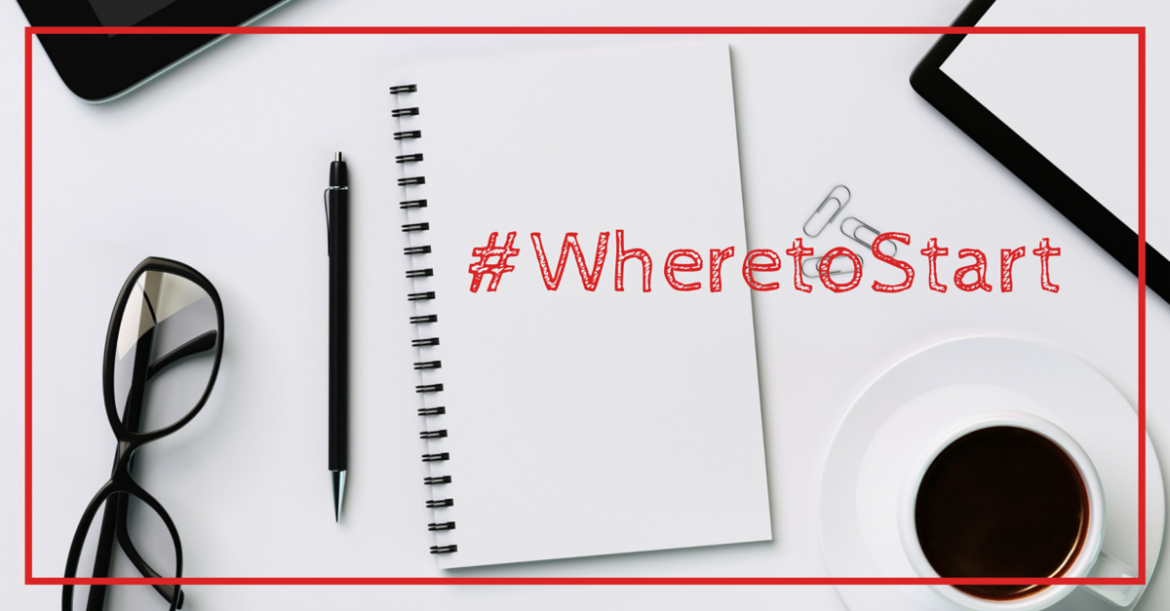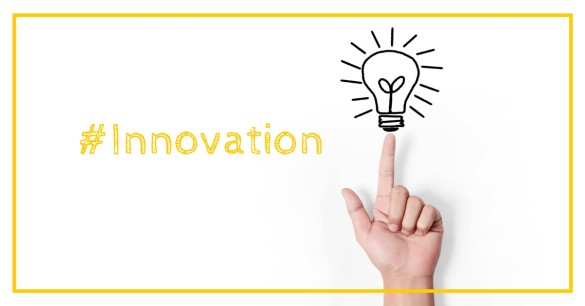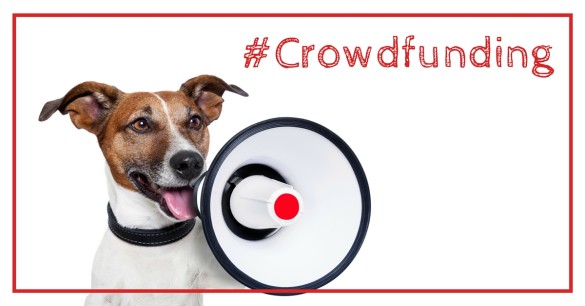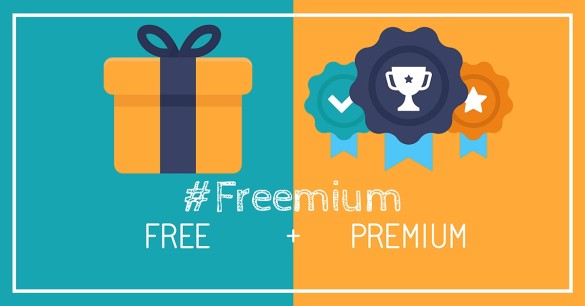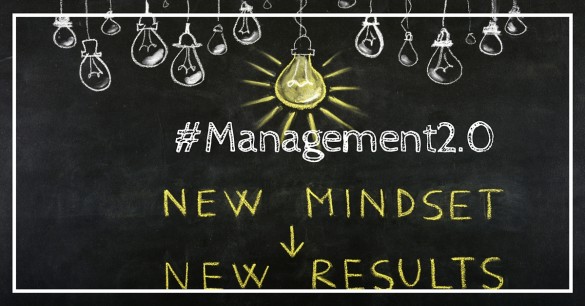A few weeks ago, Sarah kindly asked for an interview on Social media & startups. She published an audiocast you can get from her site socialmedia4startups.ch but here is the transcript she authorized me to publish on our blog. This interview was realized on April 3rd, 2013.
The interview: Social Media Vs Startups in Switzerland, Where do we stand?
Sarah: Welcome to the Social Media for Swiss Startups Interview Series. In today’s interview, I talk to Sandrine Szabo, founder of netinfluence and Simplelab.ch. Hi and welcome, Sandrine.
Sandrine: Hi, Sarah.
Sarah: Before we begin, let me say a few words about you. You’re the founder of netinfluence, a digital pure player agency and Simplelab.ch. You help brands develop their reputation and business online and rethink their entire marketing approach. You regularly teach conferences but also train companies teams namely communication and marketing. So welcome again and thanks for your time.
Sandrine: Thanks to you, Sarah.
Sarah: Let me start with my first question. If Switzerland startup scene was a school grade, in which grade would they be in, in your opinion? So preschool to ninth grade.
Sandrine: It’s difficult to say. I wouldn’t say they’re in a preschool state because actually, the startup scene is a really well-coached by many structures. There are plenty of things to help startup. It’s probably one of the best places I would say in Europe in regards to startups because there are lots of investments, there are lots of money, there are lots of supporting structures around them. So I would say they’re pretty much in the highest grade.
The only thing is that there are plenty of things but none of them is really well-known or well-linked to each and other. So you have to find your way through it. You have to be able to get the right contacts in the first place. It takes a long time to figure out how it works when you’re a small startup.
Sarah: Yeah. I think you’re right about that that there is all these different kind of channels and websites but it’s not like somebody gives you a guide and say, “Here’s all the things you need to know.”
Sandrine: The most recent one is Innovaud I think which is very specific to french part of switzerland and intending some regrouping of the various activities which is still very much concentrated on the main channels around (there is also Alpict for startups in the ICT industry). And I think we should be having a super go-to where you would see all the investors, all the funds, all the supporting structures, all the coaches, where there’s money to get, contests to win, whatsoever, for the startup because it’s basically hard to find your way.
Sarah: Yeah. Yeah, I know. I agree. So yeah, that leads me to the second question which is kind of related. How do startups then stay up-to-date now in terms of social media? So with the latest social media developments, is there any blogs that they should follow? Do you have any tips for them where they can get this information?
Sandrine: Well, difficult here again because as far as social media is concerned, very much the social media is developed outside Switzerland anyway. So, if you were willing to get the best resources, I would guess you would go abroad or maybe in the US where it comes from. The Social Media Examiner, to my understanding is a good site. It’s really handy. And I guess a couple of good sources around there are the ones from Brian Solis, Chris Brogan, those guys know well about email marketing and pretty cool in that respect.
But I think if you were looking at the Swiss scene in a way, there’s plenty of blogs of course. But I’m not sure – I don’t see anyone standing out really. I guess much of – many of their sources including our blog sources do come from the US. So it just depends on what you’re looking for. The main advantage if you want to find a blog, a good one, in the French part or even in the general part of Switzerland, is that at least they would rephrase it. They would re-explain it in regards to their Swiss context.
So that would be one reason why you should try to find good blogs. At least, that’s what we’ve tried to do with ours. But I must reckon that I don’t actually read many Swiss sources myself. But I’m not probably the best adviser for that.
Sarah: Yeah. And I guess it also depends. I mean there are some startups whose target audience is only in Switzerland. But probably most of the startups, their target audience is also outside of Switzerland. So they don’t need to just only target the Swiss audience. So it doesn’t hurt to get information from the US as well.
Sandrine: And actually, most of the startup founders are not Swiss.
Sarah: Yeah.
Sandrine: There was a recent study that was explaining that from startups who, I think it was seven out of ten are not Swiss nationals. So it probably does make sense for them to look where they come from I guess. But it doesn’t mean that the social media scene is not covered at all in Switzerland which is not the case. There are plenty of groups. There’s the Social Media Community. There are plenty of bloggers around. So it’s not lacking source. It’s just that it depends on what you’re looking for. If you’re looking for evangelization and coaching, it’s better that you find a source that is next door because then you can ask questions and it’s in your proper language and et cetera.
Now, if you’re asking me where do you stay up to the trends? You obviously don’t stay up to trends if you look at the Swiss market.
Sarah: Yeah, that’s funny. I just read an article from Olivier Tripet, the founder of Swiss Community Manager’s Association
Sandrine: He’s one of the bloggers.
Sarah: Yeah, the Community Management Association, and he said, “Twitter is – 2013 is going to be the year of Twitter.” So yes, like you say, you can’t say that the Swiss are trendy. In the US, they’re getting tired of Twitter and we’re just starting so. But I like the resources you mentioned, Social Media Examiner, Chris Brogan, who else?
Sandrine: Brian Solis.
Sarah: Brian Solis, I would add, HubSpot which is a great resource center for …
Sandrine: Yes. HubSpot belongs to Chris Brogan and his team.
Sarah: Yeah.
Sandrine: He has shares in it.
Sarah: Yeah.
Sandrine: The best in my opinion is Social Media Examiner because they don’t try to sell you something. HubSpot is too, I don’t know how to say it, too bossy or too – they’re trying to sell …
Sarah: Pushy, yeah.
Sandrine: Pushy, yeah exactly.
Sarah: Yeah. That’s true but you don’t have to buy anything. You just take the information.
Sandrine: Yeah. But every time you want to read something, you have to get email …
Sarah: Yeah, yeah, those opt-in forms, they’re like one-page long. Yeah.
Sandrine: Plus the content you get in the end is very shallow. So I don’t much like HubSpot. Social Examiner is really cool because they really do take the step-by-step thing. They have their email, it’s really cool. So I like that one.
Sarah: Yeah, I agree. Yeah. You did a great job, Michael Stelzner. Excellent. Which one of the social channels in your opinion is the best one to start with for a non-medical Swiss startup? So not in the medical field. Where would you tell them to start with?
Sandrine: What do you mean? Channels like Facebook, Twitter? Is that the question?
Sarah: Yeah.
Sandrine: OK. The channel is the wrong question. Asking the question with channels to me is asking me, which tool do you want to use? It depends. Do you want to build a house? Do you want to refresh your wall? Do you want to – what is it you want to do? So before I would ask what task you do they want to perform, which audience do they want to target, what is it they want to do, and what do they expect from it?
The current main channels of course are Facebook and Twitter and I would not get rid of blogs because I think they are the most important ones and will become soon the most important one again when people will realize that they don’t want to rely on the other channels than theirs for information.
Sarah: Yeah.
Sandrine: So, I don’t know. Those are the main ones. Of course, Facebook is cool when you want to reach out the B2C people. But when you’re in the B2B listener for instance, it’s definitely not in Facebook you should be going to. So I don’t know. It very much depends where you have to go. I must say that I’m getting fed up with Facebook a lot because they are so commercial and so pushy for the marketing. They tell me which are the friends I should see in my timeline and I think this is just unbearable. I don’t know. I don’t like it. I don’t like it for myself. I don’t like it for brands.
They used to have a developer support for brands. They don’t have it any longer. It’s gone to another website. And when you’re small, nobody – company like would be a startup in Switzerland or almost any company in Switzerland, you don’t have a key account in Facebook because you don’t spend millions of dollars in advertising. We basically receive no help from them.
So basically, if you want to develop an application and we’ve done many so we know what we’re talking about, don’t expect any kind of support neither from the community nor from Facebook itself to develop your site. You will get none. And I think that’s a real pain in the neck.
Sarah: Yeah, I agree. I think everybody I talked to is tired of Facebook. So I don’t know. Time will tell but I honestly think that people will stay on Facebook for family and friends. That’s how they hooked us. They’re like – everybody does that. But in terms of business reasons, I really don’t see a bright future for them. But that’s another time for another discussion.
Sandrine: Exactly, yes. I was expecting a little from MySpace. Because it sounded fantastic but ever since then I’ve not heard of anything. So, I don’t know.
Sarah: Yeah. We’ll see what the next one is. Sandrine: Yeah, sure.
Sarah: One last question maybe. What importance does content have in your eyes?
Sandrine: Well, it’s clear. Obviously, if you don’t have content, you have nothing. It’s just that previous conversation we’re having on HubSpot. Why is it I don’t like that site? It’s because of the content. When it’s shallow, when it’s not good, I would tend not to like it because there is such a lot quantity of content in sites and alternatives to whatever you’re doing in your business. You do have to secure the content because in the end, people will stay for that. They might be attracted by various things but do they stay for that.
It’s just like if you go to a restaurant. You might be attracted because it looks glamorous and shiny but if the food sucks, you won’t return. And it’s just the same for content.
Sarah: How do you convince then your clients that? Because content obviously, it takes time. How do you convince your clients that it’s worth it in the end?
Sandrine: How do I manage to do it or how do I try to do it?
Sarah: What kind of arguments do you give them to say you got a blog or you got a great content?
Sandrine: I must say that’s a difficult one because it’s very easy to tell them what to do when it comes to you doing things. But when it comes to them doing things, then it’s the hardest part. I manage to explain that it’s worth it when we talk about SEO namely. And when they realized that the price of SEO can be cut by hundreds if I have the rightful content because then it’s self-explanatory and it’s good and it works. That they can understand because I guess they become savior over time and they have noticed that SEO is a lot quite cost-effective area in their budget. So that’s the one. If you want to argue with the customer, you basically do have to give them a money reason and that’s one of the best I know of.
Now, the only problem we have with content is that when you talk to a client about content, you generally talk about what you should be doing now. But the main problem obviously is not what you should be doing now but what we have to do in one month, in three months, in ten years with content that he has. And I have not seen so far aside one client, any awareness with that content not only content is king but can also be dramatically risky if you don’t handle it over time. You have to get rid of old content. You have to archive. You have to manage your sources. You have to make sure your links don’t drop dead and so on and so forth. And that’s something that is difficult.
Sarah: OK. So that’s the feedback you’re hearing from the clients?
Sandrine: And that’s the experience we have because we’re in the business now for a couple of years so we’ve been following clients to whom we’ve been saying that. And they tend to now start to realize that they will be found if they have a good content and customer will stay if they have the good content or a good product. Content and products, that’s the same. But they don’t tend to realize how important it is over time. And they have some kind of a legacy in a way that they have to handle. And in companies, we’ve not seen so far anyone responsible for handling that legacy.
It’s about reutation. It can damage companies if they don’t handle it properly.
Sarah: Yeah, yeah. They basically need one person who just takes care of content. Yeah.
Sandrine: At least.
Sarah: Yeah, great. Really the last question, Sandrine. What do you enjoy in life when you’re not teaching, coaching, or working on a client’s project?
Sandrine: Well, many things. I love reading. I’m very addicted to marketing so I read a lot about it. But more seriously, I like motorcycling.
Sarah: OK. Sandrine: I’m a rider.
Sarah: OK, great. Sounds good. Well, finally the winter is over so you can take it out again.
Sandrine: Well, I took it out again actually three weeks ago. But obviously, it was too early. So it is sleeping in my garage waiting for warmer days.
Sarah: Excellent. Well, thank you so much for your time, Sandrine. Just want to mention where you can read Sandrine’s latest blog posts at blog.netinfluence.com and connect with her on Twitter@netinfluence. You also have your personal Twitter handle. You want to mention that as well?
Sandrine: Yes, it’s @SandrineSzabo. It’s all linked together.
Sarah: All attached. OK, great. Well, thanks again for your time. It was a pleasure talking to you.
Sandrine: Thank you, Sarah.

